Exploitation of the Shipping Industry
Iran is increasingly attempting to circumvent sanctions, resulting in several instances of international shipping companies transporting illegal weaponry to Iran.
This trend prompted Stuart Levey, then Under Secretary for Terrorism and Financial Intelligence at the U.S. Department of Treasury, to warn that, "US companies involved in third-country trade – as well as foreign shippers and freight forwarders doing business with the US – must be aware of their sanctions responsibilities. And all shippers, wherever they do business, should exercise enhanced vigilance, particularly where shipments may involve Iran."
Below, see a list of high-profile incidents of Iran exploiting the international shipping industry to transport weaponry worldwide. In order to halt these illegal shipments, international shippers must cease their Iran business.
Atlantic Cruiser Incident
Shipper: Bockstiegel/C.E.G Bulk Chartering (April 2012)
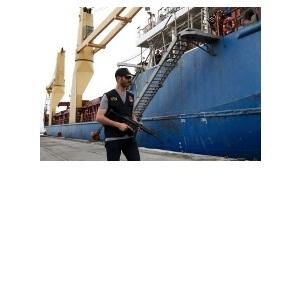
In April 2012, the Atlantic Cruiser, a German-owned ship allegedly carrying Iranian military equipment bound for Syria was halted in the Mediterranean. “Defectors in the Syrian government apparatus” tipped off authorities about the weapons cargo.
The ship had been chartered by a Ukranian company called White Whale Shipping and was bound for Tartus, Sryia.
Malaysia Incident
Shipper: MISC Berhad (March 2011)
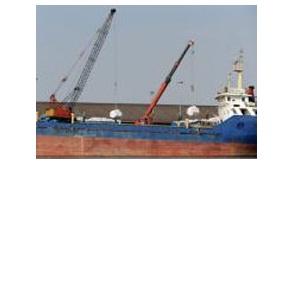
In March 2011, the Malaysian police seized two containers full of equipment they suspected could be used to make nuclear weapons smuggled on board a ship headed to Iran. The freight forwarder had falsely declared the contents as "goods used for liquid mixing or storage for pharmaceutical or chemical or food industry."
The cargo was seized from a Malaysian-registered ship traveling from China to Tehran. The Malaysian International Shipping Corp. (MISC) was operating the vessel.
Victoria Incident
Shipper: CMA CGM (March 2011)
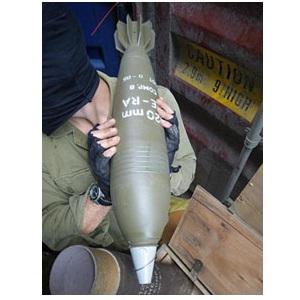
n March 2011, Israeli forces intercepted the vessel Victoria in international waters in the Mediterranean, stating that it was carrying weapons by Iran via Syria. According to Israeli officials, the arms shipments included "roughly 2,500 mortar shells, nearly 75,000 bullets and six C-704 anti-ship missiles." Israel says ultimate destination of the cargo was for the Hamas-controlled Gaza Strip.
The vessel was chartered by French container shipper CMA CGM. In a statement, CMA CGM said, "The ship's manifests do not show any cargo in contravention [of] international regulations, and we do not have any more information at this stage."
Nigeria Incident
Shipper: CMA CGM (October 2010)
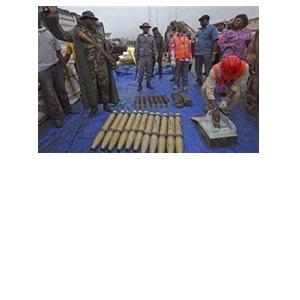
On October 30, 2010, Nigerian authorities seized 13 shipping containerscarrying illegal Iranian weaponry at Lagos’ Apapa Port. The containers included 107 mm artillery rockets [Katyushas], explosives and rifle ammunition. The arms were to be shipped next to Gambia, with the final destination of the cargo possibly the Gaza Strip.
The MV CMA CGM Everest originally picked up the containers from the Iranian port of Bandar Abbas. CMA CGM says it was victim of a false cargo declaration, claiming the weapons were shipped in packages labeled as "glass wool and pallets of stone" and that the Iranian shipper "does not appear on any forbidden persons listing."
In November, Nigeria reported the seizure of the illegal arms shipment to the UN Security Council, accusing Iran of violating UN Resolution 1929. The resolution bans Iran from "supplying, selling or transferring directly or indirectly from its territory or by its nationals… any arms or related material." Two Nigeria-based members of the Qods Force, an elite unit of the IRGC, were implicated in the arms shipment.
Italy Explosives Seizure
Shipper: MSC (September 2010)
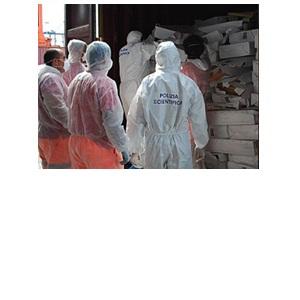
In September 2010, Italian police seized 7 tons of RDX explosives from an MSC-owned ship in the port of Gioia Tauro. Italian police believe the explosives, which were hidden behind sacks of powdered milk, were in indirect transport from Iran to Syria.
Francop Affair
Shipper: FrancopSchiffahrts GmbH (November 2009 )
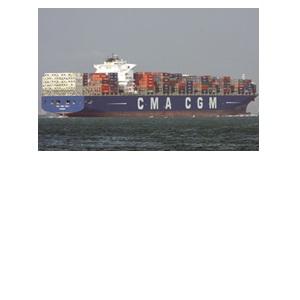
On November 4, 2009, Israeli commandos boarded the MV Francopnear the coast of Cyprus.
The ship was full of weapons from Iran destined for Hezbollah. The cargo included more than 300 tons of weaponry, including "thousands of medium-range 107- and 122-millimeter rockets, armor-piercing artillery, hand grenades and ammunition for Kalashnikov rifles."
The MV Francop is owned by the German company Francop Schiffahrts GmbH & Co and operated by United Feeder Services, a Cypriot company.
Suez Incident
Shipper: Leonhardt & Blumberg (October 2009)
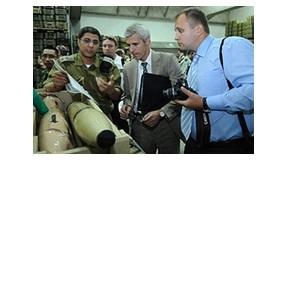
In October 2009 U.S. soldiers boarded the German Hansa India in the Suez Canal and seized a weapons cache. Seven containers contained 7.62mm ammunition and the eight enclosed cartridges suitable for the manufacture of additional rounds."Investigators suspect that the arms were part of an Iranian shipment bound for either the Syrian army or for Hezbollah, the militant Islamist group. US officials have pointed out that the delivery is in violation of United Nations Security Council Resolution 1747, which prohibits arms shipments either into or out of Iran."
The ship is owned by Leonhardt & Blumberg, a Hamburg-based shipping company. According to Leonhardt & Blumberg, the ship has been under charter for years to the state-owned shipping company Islamic Republic of Iran Shipping Lines.
UAE Incident
Shipper: CMA CGM (July 2009)
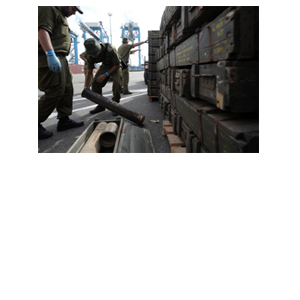
In July 2009, the UAE seized a shipment of weapons from North Korea destined for Iran. The shipment was made in violation of UN Security Council Resolution 1874 which bans all North Korean Arms exports.
The weapons, which included RPGs, detonators, ammunition, and rocket propellant, were shipped by a Bahamian-flagged ANL-Australia vessel, which is a wholly-owned subsidiary of French container shipper CMA CGM.
The weapons were exported by Italian company Otim, which had the cargo listed as oil drilling equipment.
Cyprus Incident
Shipper: Murmansk Shipping Company (January 2009)
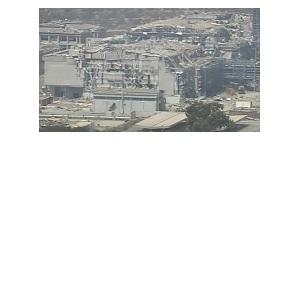
In January 2009, the U.S. stopped and boarded the MV Monchegorsk, a Russian-owned, Cypriot-flagged vessel chartered by the Islamic Republic of Iran Shipping Lines. The ship, bound for Syria, was found to be carrying weapons in violation of the UN Security Council’s ban on Iran exporting arms.
The ship was detained in Cyprus, where local authorities confiscated and impounded 98 barrels of munitions that contained 3,300 cases of high explosives as well as shell casings and primers.
On July 11, 2011, those stored Iranian munitions accidentally exploded(pictured) at a Cypriot naval base, killing 12 people in Cyprus’s worst peacetime military accident.